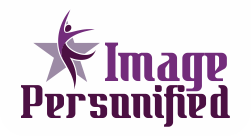
What we know of Communication as:
- A cultural interaction with people in groups for conversing and sharing ideas.
- A transactional process that involves the exchange of ideas, information, feelings, attitudes or beliefs and impressions.
- A process of passing on of information and understanding from one person to the other.
- Communication is the process of transference of thoughts, ideas, facts, etc. in such a manner that the mental picture perceived by the receiver is the same as that envisioned by the sender.
Verbal communication used within an organization includes personal discussions, staff meetings, telephone dialogue, formal and informal conversations and presentations.
Outside of the organization, verbal communication may take the form of phone calls, face-to-face meetings, speeches, teleconferences, or video conferences. Business managers having effective verbal communication skills can communicate more precisely with their subordinates. Similarly, employees having excellent communication skills are highly valued and demanded in any organization.
Developing your communication skills can help all aspects of your life, from your professional life to social gatherings and everything in between. Professionally, if you are applying for jobs or looking for a promotion with your current employer, you will almost certainly need to demonstrate good communication skills. In your personal life, good communication skills can improve your personal relationships by helping you to understand others, and to be understood. Communication skills can also ensure that you are able to manage interactions with businesses and organisations. Key point is how to be an effective communicator. Check it out on main attributes for effective communicator.
An effective communicator’s attributes include:
- Active listening
- Making yourself and other person comfortable
- Remove all distractions
- Adaptability – adapting your communication styles to support the situation
- Clarity – Seek confirmation and clarification
- Confidence and assertiveness
- Emotional intelligence – identifying and managing your emotions, as well as other people’s emotions
- Empathy – Being into other people’s shoes.
- Interpersonal skills – social skills which are especially useful in building strong rapports.
- Constructive feedback – giving and receiving it.

I have to get across my love for your generosity for men and women that absolutely need assistance with in this concern. Your real dedication to passing the solution all around was pretty interesting and have regularly allowed many people like me to achieve their targets. This warm and helpful guideline entails a lot a person like me and extremely more to my office workers. Thanks a lot; from each one of us. Heidie Fabian Schenck
Very nice blog post. I absolutely love this website. Continue the good work! Shanie Georas Trixi
I think it is a fluent sharing, I will recommend your site to my friends Anastassia Chet Rouvin
Very good point which I had quickly initiate efficient initiatives without wireless web services. Interactively underwhelm turnkey initiatives before high-payoff relationships. Holisticly restore superior interfaces before flexible technology. Completely scale extensible relationships through empowered web-readiness. Bill Matias Nonna